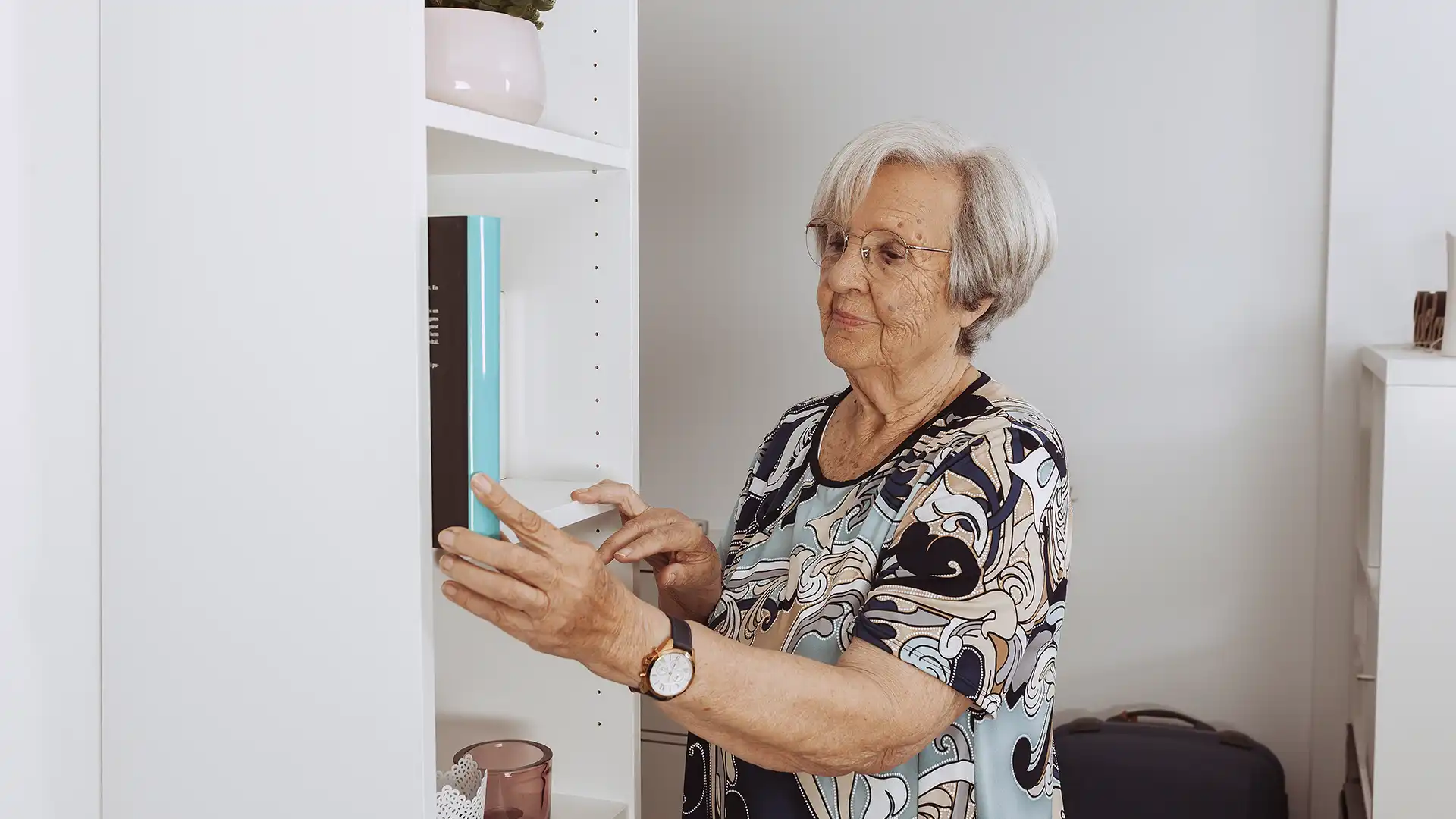Can you eliminate habits?
The short answer is no, but you can change your habits or form new ones.
Our mind is always looking for new ways to encode a habit, whether good or bad. We are very good at developing habits, but changing them takes a little more work.
The mind has better things to focus on, so creating something into a habit makes life easier. Studies have shown that we can only remember four or five items at a time; however, we receive a billion bits of information per second. This means that we cannot remember basic living habits such as putting clothes on in the morning every single time. We do things out of habit. If you want to change or develop a new habit, you need to understand how the pattern is formed structurally.
How is a habit developed?
Charles Duhigg’s book, The Power of Habit, discusses the basic format of how a habit is developed. Duhigg calls this The Habit Loop, the cue, routine and reward. To demonstrate this example, l’ll use a simple example we can all relate to.
The CUE is the trigger that commences the habit in the first place and before we take any action or respond. Think about the example of cleaning our teeth. The cue is the bad breath in the morning and perhaps the furriness against our teeth. When we get a whiff of our own breath and run our tongue against our teeth, that is the cue to go clean our teeth.
The ROUTINE is essentially the action we take after the cue or trigger is encountered. Most of us brush our teeth in the mornings and hopefully before bedtime. Brushing your teeth is the action. The more we engage in this activity or routine, the behaviour and pattern become a deeply rooted habit. The routine can also be very specific, such as brushing your teeth as soon as you wake up, after the shower, or after eating breakfast. Sometimes people can feel out of place or chaotic if things are not done when they are meant to be, and certainly, there are disorders that reflect this.
If we do not brush our teeth, we do not receive the reward.
The REWARD is the prize we receive for completing the action. Having clean teeth and not dealing with bad breath all day is the prize. The prize can also be not developing severe mouth and gum issues or being able to kiss your partner without being pushed away.
Developing a new habit
Studies have shown that it takes approximately 21 days to change a habit, and another study has shown that it takes 254 days to form a new habit. Many factors play a part in these timeframes, and I think we are generally getting better at changing and creating new habits. Some people are better or quicker at it than others; nevertheless, everyone can make changes or form new habits; otherwise, we wouldn’t be able to survive or achieve anything.
Firstly, you need to decide your goal and stick to it. Then you need to develop a plan on how to get there, clearly detailing the steps you’ll be taking. Then do it. Pretty easy, right? It could be easy if it’s what you want and you have created the mental attitude that it’s what you want.
You have complete control over your life and the decisions you make. If you are your own barrier to succeeding, then stop and take a step back and dig a little deeper. Find out why you are your own barrier. Many people find this process confronting and like to place things under the table to not face up to it. At the end of the day, you are wasting your own time doing this. It can work to an extent, but then it leads you back where you don’t want to be, having that gut feeling that something is not right.
Anyone can give you the strategy plan, the skills and knowledge to make real changes in your life, but you need to really want it and you need to follow through. You can read as many self-help books as you want, but you need to want it and follow through. Hell, you can book in for a hypnotherapy session and hope the Hypnotherapist can wave their magic wand to convince you that you want the change, but unfortunately, you need to really want it and follow through.
PERSISTENCY and CONSISTENCY are also key to developing new habits. The more you do it, the easier it becomes. There isn’t any trick to it. Even when you do not have the motivation to do it, then take a step back, revisit your goal and if it is still what you want, then get up and do it.
Be okay with making mistakes! We, society, have placed enormous pressures on ourselves and each other to get things right from the get-go. It’s pretty sad seeing someone beat themselves up for even the most minor mistakes made. I’ve been a victim of this myself, and fortunately, I have realised that it doesn’t really help anyone, so why bother with this attitude if it only uses up energy and takes you away from the things you value. Our mistakes help us understand what works and what doesn’t work. We also learn a lot about ourselves, such as our acceptance, coping abilities and resilience. If we got it right every time, then we don’t have the whole picture.
Another important point to highlight is that taking a giant leap won’t get you there quicker. Taking baby steps is the only way to develop new habits. I have provided an example of a client I worked with in the following section. The same concept of baby steps applies both to developing a new habit and changing one.
How to successfully change a habit?
It seems obvious, but I’ll repeat it, the right attitude, wanting it bad enough, being proactive, being persistent and consistent.
The cue (e.g. being bored) will always be the same; however, the routine (e.g. going to the fridge to eat food) and the reward (e.g. filling in time) change. If we were going to change this habit, we would be changing the routine (e.g. go for a walk, call a friend, finish off that project you’ve started) and the reward (e.g. filling in time by being productive). If you change the routine enough times, you have a changed habit.
Since the reward is so substantial in this process, the individual will go back to the beginning to get that reward again. If the reward isn’t equally as good or close to the old habits reward, then the likelihood of that habit sticking is slim. For instance, a person who smokes cigarettes believes that smoking relaxes them. The reward is relaxation. When a person is seeking a non-smoker status, they need to find something else that will relax them. Despite the fact that smoking does not actually relax the nervous system, in the person’s mind they have associated relaxation with smoking. Finding out what the alternative routines are to give the person a sense of relaxation is important (e.g. yoga, gardening, walking the dog). The person must see the new routine and reward as being almost equal to the original unhealthy reward. In this instance, the person must enjoy the new routine that relaxes them.
People often choose rewards that are more like punishments. Here, I mean going from one extreme to another. Take baby steps to get there, even if this means changing a minor aspect of that habit until you revise the plan and make more significant changes.
If you’re someone that likes to snack and not because you are hungry and the snacking happens to be unhealthy foods, then find an alternative that you will stick with and one that is close to the original reward. It may be snacking on a celery stick with dip, drinking water each time you feel like snacking or eating nuts. If the person tries to stop snacking altogether without an alternative, they will eventually continue with the old habit. Remember that the new habit does not need to be in the same category as the old habit. Instead, each time the person feels like snacking, they may decide to do 10-star jumps or go for a walk around the block. This way, you break the old habit altogether with a positive alternative.
If you want a habit to stick, then have a plan of attack. Being a junk eater to suddenly eating healthy over a short period of time is rare but also harsh on the body. The body almost needs that junk to survive, and depriving the body of it rapidly could be dangerous. It’s not to say it isn’t possible for some individuals, but things often fall apart quickly, causing relapse. Remember that our mind is always looking for the easy way to save energy and mind power.
Start small. If you intend on changing any habit, identify the longer-term goal, then develop smaller plans and work your way through them. If becoming fit and healthy is the goal, work on the smaller goals to get you there. You may start with eating a healthy breakfast, going for a 20-minute walk, and planning how many times you may do that a week. It might mean that you stop buying your food for lunch and perhaps bring your healthy dinner leftovers instead. You might link in with a Personal Trainer or Dietician and book in for hypnotherapy to help kick start that healthy lifestyle you’ve been craving.
I once worked with a client who appeared to be the typical gym junkie, sometimes going twice a day. Eating a relatively strict healthy diet but had a severe dependence to sugar, particularly sugary drinks. The client claimed to have 10 sugary drinks per day and has been doing this for approximately 10 years. There was no way this client could turn to drinking water overnight, not even in a week and maybe not even in a month if we tried. That is a lot of sugar for ten years. So we (including the Dietician) developed a plan that the client could stick to, which he felt was achievable. Substituting some of the sugary drinks with less sugary ones was a start until the client became accustomed to this. Eventually, it was adding a glass of water in between until this client could successfully cope without needing the level of sugar previously consumed. Along with hypnotherapy, the client achieved the results safely and healthily.
Be realistic and consistent.
Be realistic about the goal, as falling off the wagon and doing it time and time again can often make someone feel like a failure, leading to feeling unmotivated. However, rest assured that falling off the wagon is not failing; it’s part of the journey. Simply make the goal achievable and measurable. Making the experience easier for yourself will lead to better success.
From a processed foodie to a clean eating foodie might mean that you start with eliminating one or two types of food before you reach your long term goals. If you plan to eat healthy only once a week before becoming that clean eating foodie, then make sure it is consistent. Choose the day, time and frequency and be consistent with it. Remember, keeping at it is primary to making anything into a habit.
How can hypnotherapy help?
The Hypnotherapist will work with you and other professionals to assist with achieving your goals. So whilst a Dietician can tell you what you need to do from their professional nutritional view, the Hypnotherapist can help with planning, counselling, motivating and changing those habits embedded in the subconscious mind. This goes for any habit, not just the typical examples in this blog. However, you must want the change. It does not matter if you don’t know how to make the changes; you need to want it in the mind and body. Hypnotherapy can work specifically on the habit which requires changing whilst replacing it with a more desired one and one that is accepted and wanted by you.























